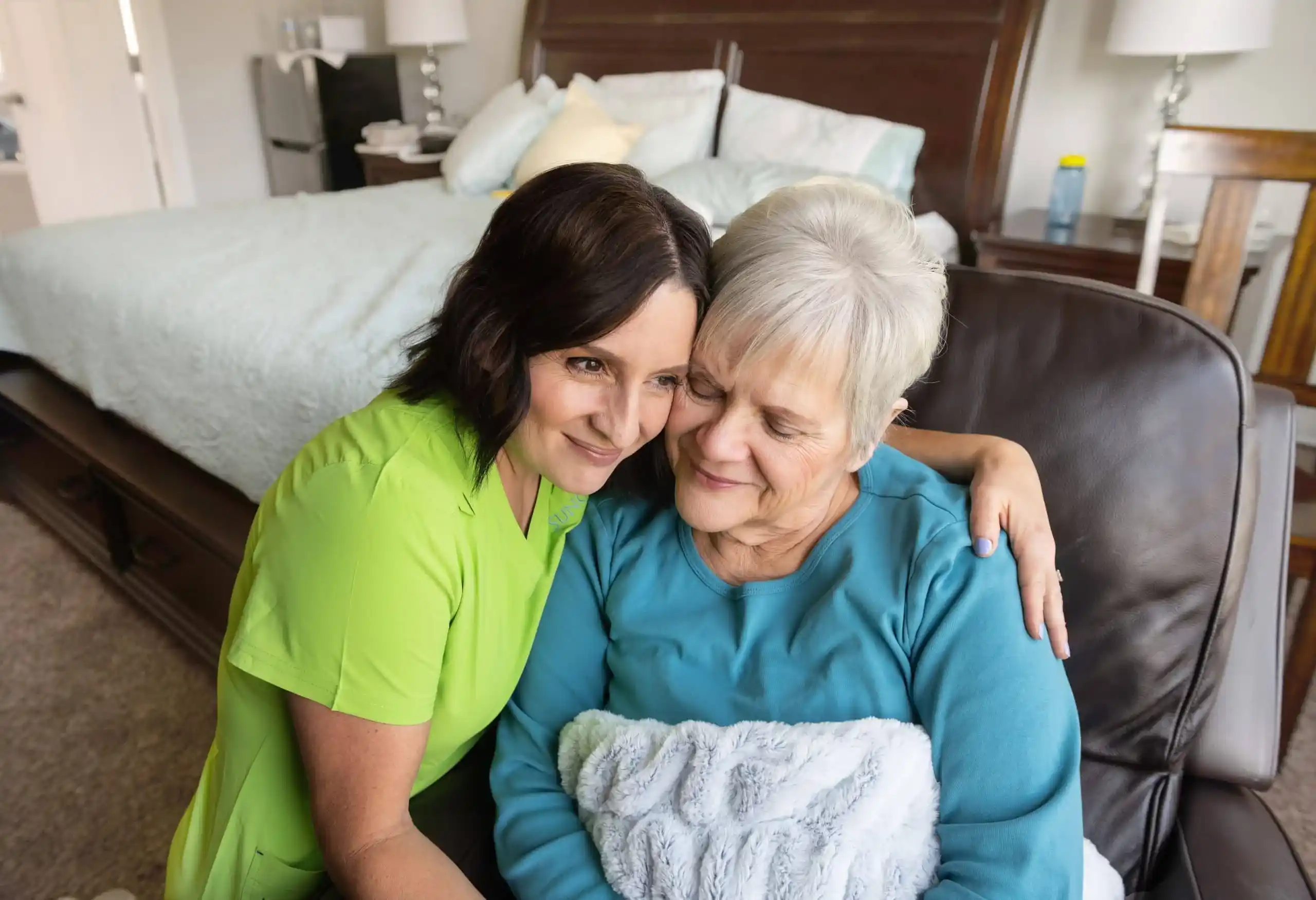Hospice Angel
I entered a modest home with Shelley, the daughter-in-law of a woman I would subsequently spend everyday with, until her last breath. This woman was being cared for day in and day out by Shelley. The son worked several hours a day and when he was home, he drank like a fish. My guess is he was drowning his sorrows about his dying and demented mom. There was also a grandson in the house who, at first, was very timid and wary of me, but by the end was my buddy. We will call this woman Ida. Ida was living in the basement of her house and was in the end stages of dementia. She was beginning to starve herself of any food except sweets. She loved her candy.
I had Ida on my schedule daily, except on weekends. I was the only one they would see. That made me feel needed and I loved, but it added pressure to not miss a day of work! I would spend at least two hours each day there. Shelley would bend my ear for half of that time with all that had happened in the last 24 hours, along with how she was doing. Then I’d spend an hour with Ida doing my assessment, trying to feed her something or fill her with fluids. I never pushed her though, because I knew the end was inevitably coming.
“As I sat there, reminiscing with Ida about her life adventures, I wondered if she knew what was coming?”
As I sat there, reminiscing with Ida about her life adventures, I wondered if she knew what was coming for her or if her dementia helped her to be oblivious to it. I wondered if she was scared, if she believed in heaven, and if she would pass peacefully. Sometimes I wished I had a crystal ball.
I began to get attached to this family, especially Ida. Shelley and I became quick friends and I played games at times with Shelley, her husband, and son. They treated me like family and I felt the same toward them.
“I think it is the biggest honor to be with someone as they pass, as well as to be there for the family during and afterwards.”
Ida had lived in Georgia prior to moving to Iowa to be with family. She had lived a very exciting and somewhat dangerous life. She had not taken the best care of herself. She drank too much and was very much the life of the party. From what I was told by the son, she wasn’t the best mom, due to her lifestyle. She was absent a lot and he felt he grew up caring for her, and is still doing so. I wondered if he got his drinking problem from her. Shelley voiced her concerns to me frequently about his drinking and how she worried if he would be capable to handle Ida’s death or if he’d be drunk. I worried about them all when I wasn’t there.
Ida was about 100 pounds, soaking wet, and her nutrition was nothing but sweets. I knew she would not last more than a few weeks. She wouldn’t drink anything but Coke, so I encouraged the family to keep a glass full of it at her bedside at all times. The family was all very good at attending to her.
Later that day, I had another routine visit scheduled, this time with my patient Rose. Before I could even finish asking what was wrong, Rose (uncharacteristically) shouted, “Now that caregiver is sorely mistaken if she thinks she’s taking me down to that dining room ever again!” As the conversation continued Rose explained that she spent an entire meal sitting by herself in the dining hall. When I inquired about her attempts to talk with other residents, she responded, “I tried talking to a man sitting at my table, but he just got up and walked away. I don’t want to go down there again. All of those people have their little groups. No one wants to sit with a boring, old lady.” I felt like I was having deja vu. I was having the exact same kind of conversation with Rose that I had had with my daughter just earlier that morning. Then it hit me. The desire for acceptance transcends all factors of human diversity. Whether you’re six or eighty-seven, whether you are just starting your life or rounding it out, and no matter what “playground” in life you may find yourself on, we all need to feel needed. Everyone wants validation and acceptance. People need other people!
Perhaps the most treasured lesson that I have learned from my hospice patients came when I was a brand new, baby nurse. Derrick was one of the very first cardiac patients I ever cared for. His daughter had come from out-of-state to be with her mother and him during some of his final days. When we first met, he was so cheerful and had a contagious smile, one that would be quickly reciprocated from even the grumpiest of people. He just had a light about him. His family absolutely adored him. He had many questions for me related to his diagnosis. Although I was still quite uncertain of my skills and new-found knowledge at the time, his relaxed, warm demeanor put me at ease. The more I taught, the more he wanted to learn. We really fed off of one another. We enjoyed our time together but over the next month or two, Derrick’s cheerful demeanor was replaced with cycles of exhaustion versus wall-climbing anxiety. Looking back, I now know that he was battling terminal restlessness. I worked daily with his wife, daughter, and the hospice doctor to find the right medication regimen to manage his anxiety. It was very hard for everyone to see him in such a rapid decline. However, after some time, we were able to get him comfortable.
Towards the end, they had to put her old bed up against the sliding glass door in the basement as a barricade, so she wouldn’t get out. They installed a baby monitor with a camera downstairs for when they went to bed, in case Ida got up or called out. The camera would view on their phones and could see in the dark. It was a great tool, but I worried about Ida being in the basement and them sleeping 2 stories up. The last week of Ida’s life I recommended that Shelley sleep in the extra bed in the basement to be near Ida for when she needed to use the commode or anything else.
“I am blessed to have been able to have that time and experience with Ida and her family.”
One day they called me to come over because Ida’s breathing had changed, and they didn’t know what to do. I arrived at 5:00pm and found that Ida was nearing the end. She had hours left. I sat next to her, held her hand, and told her it was okay to let go. Her family surrounded her. Ida’s son had been drinking and became hysterical when I told him the time was close. He had no idea how to deal with the onslaught of emotions, and it didn’t help that he was drunk. I pulled him aside and provided what support I could, gently helping him to accept it was her time. I strongly encouraged him that, if he had things to say to her before she passed on, this was the moment to do so. He did want to tell her he forgave her for all she had done or didn’t do, so I took the others upstairs and gave him time to speak to her. I could hear him crying.
I prepared Shelley and her son for what was to come. They were ready. Within 45 minutes she peacefully took her last breath. We were all there with her, holding her and talking to her as she entered God’s wonderful house.
I think it is the biggest honor to be with someone as they pass, as well as to be there for the family during and afterwards. I handled all the arrangements and closed the chapter on our beautiful experience with Ida.
After Ida was taken to the funeral home, we shared hugs and I told them they did an incredible job. I thanked them for letting me be a part of this rough time, and they asked if I would be able to continue taking their calls to stay in touch. I told them I would be calling them in a couple of days to check in. I also told Shelley I had a call into the social worker to talk to her husband about looking into therapy and possible treatment. I helped her understand our care does not end here.
I am blessed to have been able to have that time and experience with Ida and her family. It will be a memory I carry with me to my death.
Sold Out hospice stories on our hospice blog
Please feel free to contact us with any questions regarding hospice care


